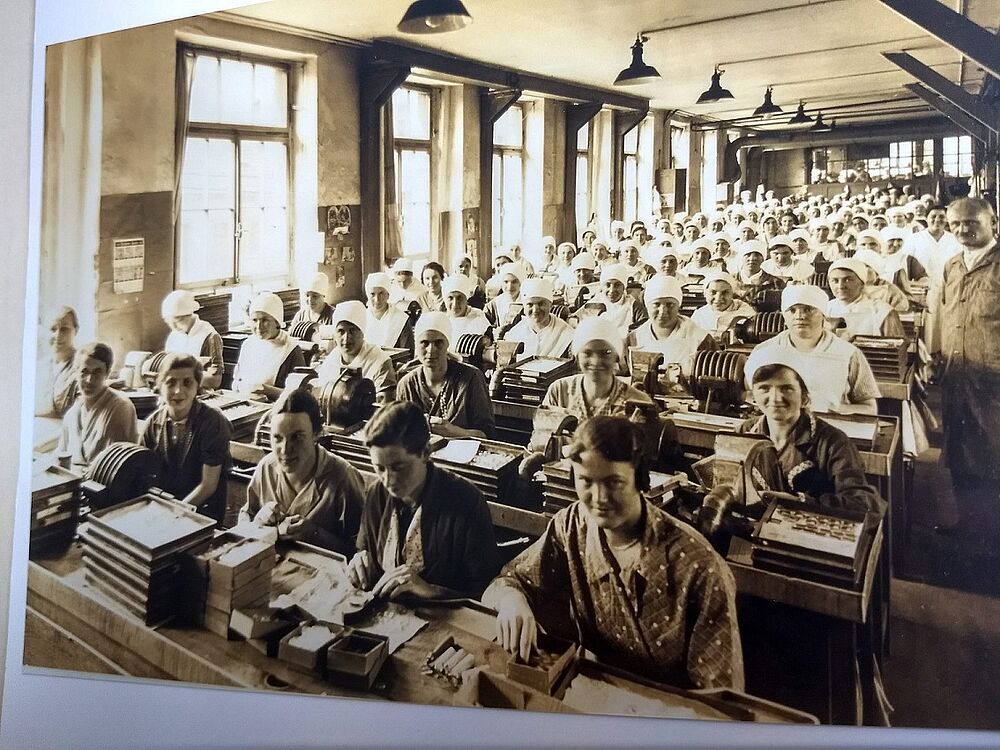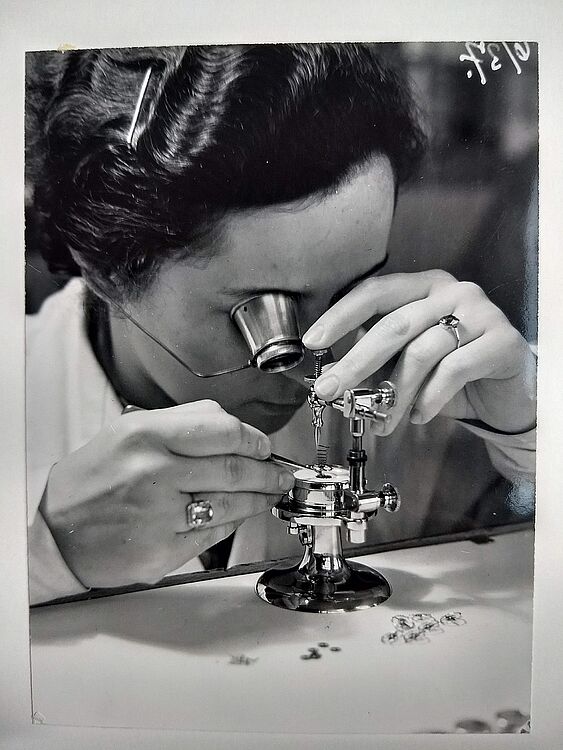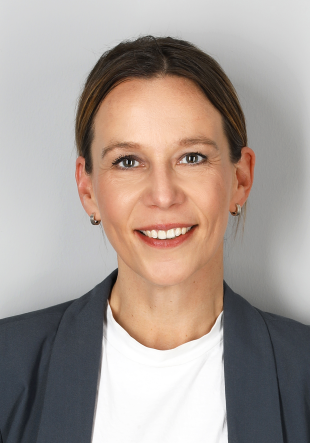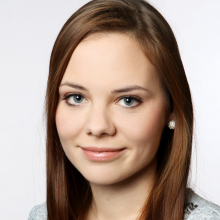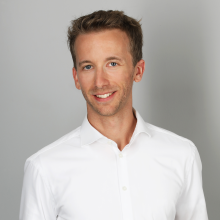The construction of organisational identity and the influence of history
The majority of academic studies on the topic of organisational identity deal with its development. However, the question of the specific building blocks of an organisational identity has only rarely been the subject of research. In our research project, we want to deal with this area of research. Our project is both qualitatively and quantitatively empirically orientated and is based on the data of all companies from two company clusters, the watch clusters in the Black Forest and in Glashütte, to which a total of 30 companies belong. Our research project is characterised by a high degree of novelty, as it will extend previous research on organisational identity in two fields:
(1) We use a multi-level approach to analyse elements of organisational identity, which includes the perspective of the employees, the organisation and also the level of the organisational field. This enables our project to gain a unique understanding of the elements that define organisational identity. In line with previous findings on research into scripted identities, we examine how the elements of organisational identity differ and are used differently based on the levels of the organisational members, the organisation as an independent actor and the organisational field. We also analyse how the organisation deals with differences in the identity elements between the three levels.
(2) We explicitly consider the role of the history of the companies, the clusters and the region, a field of research that has so far been insufficiently considered in the context of organisational identity. Furthermore, by comparing companies and clusters in West and East Germany, we are able to investigate the role of radical institutional change on organisational identity.
The expected results of our project will contribute to theory development in organisational identity research and are relevant to practice, as the role of identity formation in the context of organisational persistence and the establishment of clusters in regional economic systems plays an important role.
Co-operation partner
| Dr Simon Oertel (TU Ilmenau) | simon.oertel@tu-ilmenau.de |
| Franziska Hein (TU Ilmenau) | franziska.hein@tu-ilmenau.de |
Conference contributions
European Academy of Management 2022: "The Relationship between Organizational Identity and Organizational Pride: An Explorative Study" by Karin Knorr.
WK Org 2022: "The Relativity of Time: Patterns of Utilising Past in the Context of Rhetorical History" by Franziska Hein-Pensel, Karin Knorr, Simon Oertel and Kirsten Thommes.
Crafting World Leading Outputs in Management Research: Building Bridges & Breaking Boundaries 2022: "The Relationship between Organizational Identity and Organizational Pride: An Explorative Study" by Karin Knorr
Crafting World Leading Outputs in Management Research: Building Bridges & Breaking Boundaries 2022: "The Relativity of time: Patterns of Utilising Past in the Context of Rhetorical History" by Franziska Hein-Pensel, Karin Knorr, Simon Oertel and Kirsten Thommes.
WK Org 2021: "Crafting Organizational Identity: Differences in the Orchestration of Identity Claims by Organizations as Social Actors and the Organization's Members" by Franziska Hein-Pensel, Karin Knorr, Simon Oertel and Kirsten Thommes
American Sociological Association Annual Meeting 2021: "Incongruent Patterns of Organizational Identity Crafting by Different Organizational Actors: Reasons for Multiple Organizational Identities" by Franziska Hein-Pensel, Karin Knorr, Simon Oertel and Kirsten Thommes
Academy of Management 2021: "Incongruent Patterns of Organizational Identity Crafting by Different Organizational Actors" by Franziska Hein-Pensel, Karin Knorr, Simon Oertel and Kirsten Thommes
Academy of Management 2021: "Rhetoricians of the Past: Rhetorical History and the Crafting of Organizational Identity" by Franziska Hein-Pensel, Karin Knorr, Simon Oertel and Kirsten Thommes
Academy of Management 2021: "Since Albert and Whetten. The Dissemination of Albert and Whetten's Approach to Characterise Organizational Identity" by Karin Knorr and Franziska Hein-Pensel
European Group for Organizational Studies 2021: "Near and distant past: Differences in the application of rhetorical history in crafting organisational identity" by Franziska Hein-Pensel, Karin Knorr, Simon Oertel and Kirsten Thommes
European Academy of Management 2020: "Is corruption imprinted? A study on preconditions of corruption in Central and Eastern European countries" by Thorsten Auer, Karin Knorr and Kirsten Thommes.
Academy of Management 2020: "Is corruption imprinted? A study on preconditions of corruption in Central and Eastern European countries" by Thorsten Auer, Karin Knorr and Kirsten Thommes.
European Group for Organizational Studies 2020: "The crafting of organizational identity: Similarities and differences between the organisation and its members as rhetoricians of the past" by Karin Knorr, Franziska Hein-Pensel, Simon Oertel and Kirsten Thommes.
European Group for Organizational Studies 2020: "Communication of emotions in craft-based firms - Identity construction between innovation and tradition" by Karin Knorr and Kirsten Thommes.
Crafting World-Leading Outputs from Qualitative Research Workshop 2020: "The crafting of organizational identity: Similarities and differences between the organisation and its members as rhetoricians of the past" by Franziska Hein-Pensel, Karin Knorr, Simon Oertel and Kirsten Thommes.
Crafting World-Leading Outputs from Qualitative Research Workshop 2020: "How do concepts spread? The dissemination of Albert and Whetten's approach to characterise organizational identity" by Franziska Hein-Pensel and Karin Knorr.
Conference "Out of time? Die deutsche Uhrenindustrie im Bann der Krise" 2020: "Wettbewerbsvorteil durch rhetorische Vergangenheitsinterpretation - die Rolle von Akteuren der organisationalen Umwelt" by Franziska Hein-Pensel, Karin Knorr, Simon Oertel and Kirsten Thommes.
European Group for Organizational Studies 2019: "Organizational identity crafting in new ventures: The role of rhetorical history" by Franziska Hein and Simon Oertel.
Publications
2022
Long‐term effects of institutional conditions on perceived corruption – A study on organizational imprinting in post‐communist countries
Auer, T. F., Knorr, K., & Thommes, K. (2022). Long‐term effects of institutional conditions on perceived corruption – A study on organizational imprinting in post‐communist countries. Business Ethics, the Environment & Responsibility, 32(2), 478–497. https://doi.org/10.1111/beer.12506
Since Albert and Whetten: the dissemination of Albert and Whetten’s conceptualization of organizational identity
Knorr, K., & Hein-Pensel, F. (2022). Since Albert and Whetten: the dissemination of Albert and Whetten’s conceptualization of organizational identity. Management Review Quarterly. https://doi.org/10.1007/s11301-022-00311-7
2021
Incongruent Patterns of Organizational Identity Crafting by Different Organizational Actors
Hein-Pensel, F., Knorr, K., Oertel, S., & Thommes, K. (2021). Incongruent Patterns of Organizational Identity Crafting by Different Organizational Actors. Academy of Management Proceedings, Article 15048. https://doi.org/10.5465/ambpp.2021.15048abstract
Rhetoricians of the past: Rhetorical history and the crafting of organizational identity
Knorr, K., Hein-Pensel, F., Oertel, S., & Thommes, K. (2021). Rhetoricians of the past: Rhetorical history and the crafting of organizational identity. Academy of Management Proceedings, Article 15116. https://doi.org/10.5465/ambpp.2021.15116abstract
2020
Is Corruption Imprinted? A Study on Preconditions of Corruption in Post-Communist Countries
Knorr, K., Auer, T. F., & Thommes, K. (2020). Is Corruption Imprinted? A Study on Preconditions of Corruption in Post-Communist Countries. Academy of Management Proceedings, 2020(1). https://doi.org/10.5465/AMBPP.2020.16489.abstract
2018
History as a source of organizational identity creation
Oertel, S., & Thommes, K. (2018). History as a source of organizational identity creation. Organization Studies, 39(12), 1709–1731. https://doi.org/10.1177/0170840618800112
Show all publications
News about the DFG project
Prof Dr Kirsten Thommes gave a presentation on the topic of "Coopetition", which is part of the research in the DFG project, at the 12th Personnel Forum "New Ways in Recruiting - Transformation, Cooperation, Networking" organised by owl maschinenbau e.V.. The HR forum focussed on professional input and exchange on current recruitment issues. Prof. Dr. Thommes spoke about the possibilities of cooperation in competitive labour markets and discussed industry-specific solutions with representatives from small and medium-sized companies as well as large corporations.
You can find a report on the Personnel Forum with some impressions on the following website: https: //www.owl-maschinenbau.de/nachberichte/rueckblick-personalforum-2019/
A project meeting was held in Glashütte in September 2019. The project team led by Dr Simon Oertel and Franziska Hein from Ilmenau University of Technology and Prof. Dr Kirsten Thommes and Karin Knorr from Paderborn University conducted interviews with companies in the watch industry. The team also visited the watch museum, where they had the opportunity to talk to the museum management about the history and development of the industry.
The project team met in Pforzheim from 15.04.2019 to 18.04.2019. The team led by Dr Simon Oertel and Franziska Hein from Ilmenau University of Technology and Prof Dr Kirsten Thommes and Karin Knorr from Paderborn University used the time to collect data for the project. For example, interviews were conducted with stakeholders and a watch company. These will be analysed in the further course of the project and then compared with the information from the cluster in eastern Germany. Other items on the agenda included a visit to the Technical Museum and the city archives.
